
Speaking of Psychology
American Psychological Association
- 40 minutes 37 secondsThe psychology of sports fans, with Daniel Wann, PhD
Are you a sports “superfan”? Or do you wonder what’s driving the superfans in your life? Daniel Wann, PhD, of Murray State University, talks about why being a fan is usually good for people’s mental health, how they choose the teams they root for, why some are fair-weather fans while others love to cheer for the underdog, how fandom is changing among younger people, and whether a crowd of supportive fans can affect the outcome of a game. For transcripts, links and more information, please visit the Speaking of Psychology Homepage.
24 April 2024, 10:30 am - 25 minutes 54 secondsYou can learn new things at any age, with Rachel Wu, PhD
Picking up a new skill as an adult can seem daunting. But research suggests that learning new things as you age may be key to keeping your cognitive skills sharp -- and that middle aged and older adults may be just as good at learning as younger people are. Rachel Wu, PhD, of the University of California Riverside, talks about why lifelong learning matters, how adults can learn more like kids, why feedback and failure are important, and what types of learning opportunities to seek out.
For transcripts, links and more information, please visit the Speaking of Psychology Homepage.
17 April 2024, 10:30 am - 46 minutes 20 secondsUnderstanding the mind of a serial killer, with Louis Schlesinger, PhD
From Jack the Ripper to Jeffrey Dahmer to the Gilgo Beach killer, serial killers have long inspired public fear – and public fascination. Louis Schlesinger, PhD, a professor of psychology at the John Jay College of Criminal Justice in New York and co-investigator of a research project on sexual and serial murder with the FBI Behavioral Science Unit, talks about what we really know about these murderers’ motivations and their methods, how some manage to avoid capture for so long, and how forensic psychology research can help investigators solve cases.
10 April 2024, 10:30 am - 28 minutes 1 secondCoping with family estrangement, with Lucy Blake, PhD
Being estranged from a family member -- a parent, sibling or adult child -- is far more common than people think. Dr. Lucy Blake, author of “No Family is Perfect: A Guide to Embracing the Messy Reality,” talks about why family estrangement happens, why estrangement encompasses more than just “no contact,” the stigma around estrangement, and where and how to find support.
For transcripts, links and more information, please visit the Speaking of Psychology Homepage.
3 April 2024, 10:30 am - 44 minutes 31 secondsHow to help kids navigate friendship, with Eileen Kennedy-Moore, PhD
It isn’t always easy to navigate the complicated social dynamics of elementary, middle or high school. Clinical psychologist and kids’ friendship expert Eileen Kennedy-Moore, PhD, talks about how kids make and keep friends; how their understanding of friendship changes as they grow; why most kids are mean sometimes; and how to help kids navigate tough situations including arguments and friendship breakups.
For transcripts, links and more information, please visit the Speaking of Psychology Homepage.
27 March 2024, 10:30 am - 44 minutes 57 secondsBridging the generation gap at work, with Megan Gerhardt, PhD
As Gen Z enters the workforce and older workers put off retirement, some workplaces may see five generations sharing an office -- from the Silent Generation all the way to Gen Z. Megan Gerhardt, PhD, of Miami University, talks about why it’s important to move past generational stereotypes, why age diversity is a strength, and what older and younger workers can learn from each other.
For transcripts, links and more information, please visit the Speaking of Psychology Homepage.
20 March 2024, 10:30 am - 44 minutesExpressive writing can help your mental health, with James Pennebaker, PhD
Writing can be a powerful tool to help people work through challenges in their lives and improve their mental health. James Pennebaker, PhD, of the University of Texas at Austin, talks about why expressive writing can be good for mental health and how to try it. He also discusses his research on language use, and how analyzing the words that people use in their daily lives can offer insights into their emotions, motivations and personality.
For transcripts, links and more information, please visit the Speaking of Psychology Homepage.
13 March 2024, 10:30 am - 39 minutes 43 secondsHow music, memory and emotion are connected, with Elizabeth Margulis, PhD
The right song can make us feel chills, help pull us out of a bad mood, or take us back in time to the first time we heard it. Elizabeth Margulis, PhD, director of the Music Cognition Lab at Princeton University, talks about how music, memory, emotion and imagination intertwine; why people are especially attached to music from their teen years; whether there’s any music that’s considered universally beautiful; why repetition is important in music; and why we so often get “earworms” stuck in our head. For transcripts, links and more information, please visit the Speaking of Psychology Homepage.
6 March 2024, 11:30 am - 30 minutes 25 secondsWhat’s going on inside your cat’s head? With Kristyn Vitale, PhD
Cats have long had a reputation as standoffish pets, but many cat owners will tell you that the cat-human bond can run deep. Cat psychologist Kristyn Vitale, PhD, talks about new research on cats’ cognitive and social abilities; why cats really are as emotionally attached to us as we are to them; the best ways to enrich your cat’s life; and how to finally get your cat to stop scratching your couch.
For transcripts, links and more information, please visit the Speaking of Psychology Homepage.
28 February 2024, 11:30 am - 29 minutes 51 secondsDesigning cities to improve mental health, with Jenny Roe, PhD
The world is an increasingly urban place, and with urban living comes traffic, noise, pollution and other hassles. But cities don’t have to wear us down. Jenny Roe, PhD, of University of Virginia, talks about how to design cities that support mental health and well-being with elements like access to nature and spaces that encourage community, how our physical environment affects our mental health and the importance of equity and access in city design.
For transcripts, links and more information, please visit the Speaking of Psychology Homepage.
21 February 2024, 11:30 am - 32 minutes 58 secondsLove and algorithms: The future of dating apps, with Liesel Sharabi, PhD
Over the past two decades, dating apps have become the most common way for people to meet a partner. Liesel Sharabi, PhD, director of the Relationships and Technology Lab at Arizona State University, discusses how that shift has changed how people meet and form relationships, whether relationships that start online are more or less likely to succeed, what you can do to avoid dating app burnout, and how developing technologies such as AI and virtual reality could change dating in the future.
For transcripts, links and more information, please visit the Speaking of Psychology Homepage.
14 February 2024, 11:30 am - More Episodes? Get the App
Your feedback is valuable to us. Should you encounter any bugs, glitches, lack of functionality or other problems, please email us on [email protected] or join Moon.FM Telegram Group where you can talk directly to the dev team who are happy to answer any queries.
 Hidden Brain
Hidden Brain
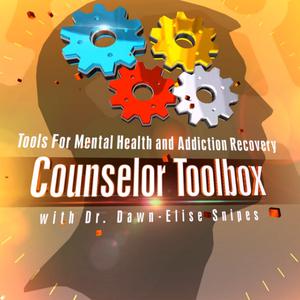 Counselor Toolbox Podcast with DocSnipes
Counselor Toolbox Podcast with DocSnipes
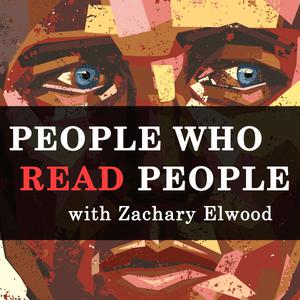 People Who Read People: A Behavior and Psychology Podcast
People Who Read People: A Behavior and Psychology Podcast
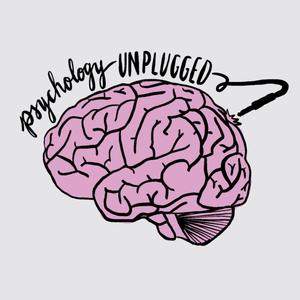 Psychology Unplugged
Psychology Unplugged
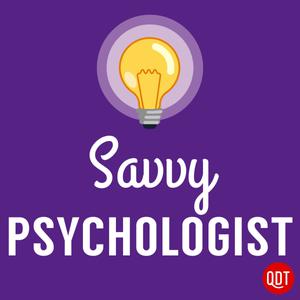 The Savvy Psychologist's Quick and Dirty Tips for Better Mental Health
The Savvy Psychologist's Quick and Dirty Tips for Better Mental Health
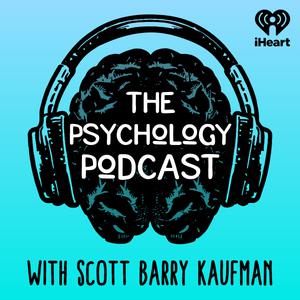 The Psychology Podcast
The Psychology Podcast